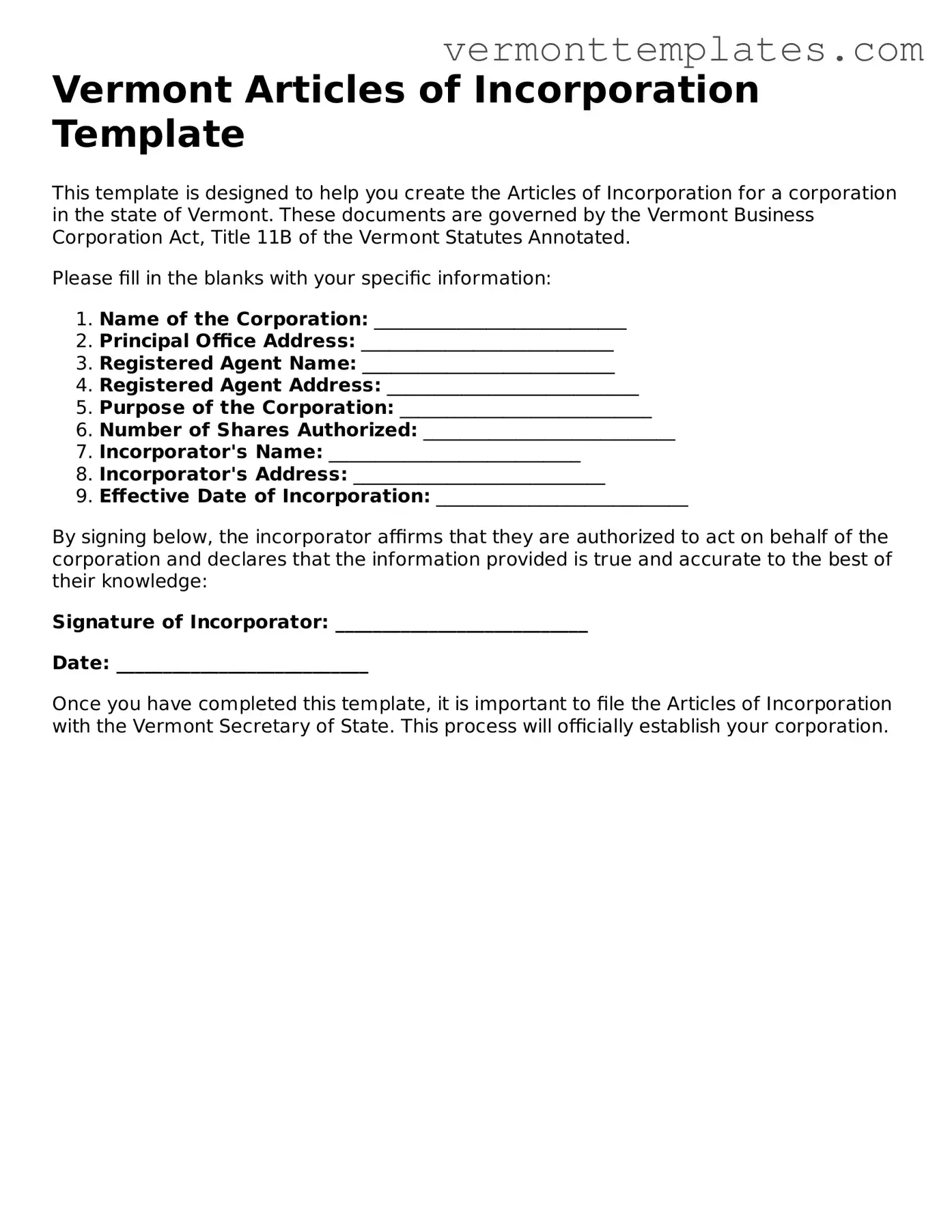The Articles of Incorporation form is similar to the Certificate of Incorporation used in many states. This document serves a similar purpose: to officially create a corporation. It outlines essential information such as the corporation's name, purpose, and the number of shares it is authorized to issue. Both documents are filed with the state government and are crucial for establishing a corporation's legal existence.
Another document that resembles the Articles of Incorporation is the Bylaws. While the Articles of Incorporation establish the corporation's existence, Bylaws provide the internal rules for how the corporation will operate. They cover important topics such as the roles of officers, how meetings are conducted, and the process for electing directors. Together, these documents help ensure that the corporation runs smoothly and in accordance with the law.
The Operating Agreement is also similar, particularly for limited liability companies (LLCs). Like the Articles of Incorporation, the Operating Agreement outlines the structure and operation of the business. It details the ownership percentages, management responsibilities, and profit distribution among members. Both documents are foundational for the legal and operational framework of the business entity.
The Partnership Agreement shares similarities as well, especially for partnerships. This document defines the relationship between partners and outlines their rights and responsibilities. Just as the Articles of Incorporation formalize a corporation, the Partnership Agreement formalizes the partnership, ensuring all parties understand their roles and contributions.
The Statement of Information is akin to the Articles of Incorporation in that it provides essential details about the corporation after its formation. This document is typically required to be filed periodically and includes information such as the corporation's address, officers, and registered agent. Keeping this information current is vital for maintaining good standing with the state.
The Foreign Corporation Registration is another document that relates to the Articles of Incorporation. When a corporation formed in one state wants to operate in another, it must file this registration. It essentially allows the corporation to do business legally in the new state, similar to how the Articles of Incorporation allow for the initial formation in the home state.
The Certificate of Good Standing is similar in that it confirms a corporation's compliance with state regulations. This document verifies that the corporation is legally registered and has fulfilled all necessary requirements, such as filing annual reports and paying taxes. It serves as proof that the corporation is active and in good standing with the state.
The Annual Report is another document that shares similarities with the Articles of Incorporation. While the Articles establish the corporation, the Annual Report provides an update on its status, including financial performance and changes in management. Filing this report is often a legal requirement to maintain the corporation's good standing.
In addition to the various documents discussed, the Employment Application PDF form plays a crucial role in the hiring process, as it allows employers to gather essential information from job seekers efficiently. This form not only streamlines candidate evaluation but also helps applicants present their credentials in an organized manner. To explore more about how to create a fillable version of this application, you can visit smarttemplates.net.
The Stock Certificate is also related, as it represents ownership in a corporation. While the Articles of Incorporation outline the total number of shares authorized, the Stock Certificate is a physical representation of an individual’s ownership stake. Both documents are essential for understanding and managing corporate ownership.
Finally, the IRS Form SS-4, which is used to apply for an Employer Identification Number (EIN), is similar in that it is often required for a corporation to operate legally. While the Articles of Incorporation establish the corporation's existence, the EIN is necessary for tax purposes and hiring employees. Both documents are integral to the corporation's legal and operational framework.

